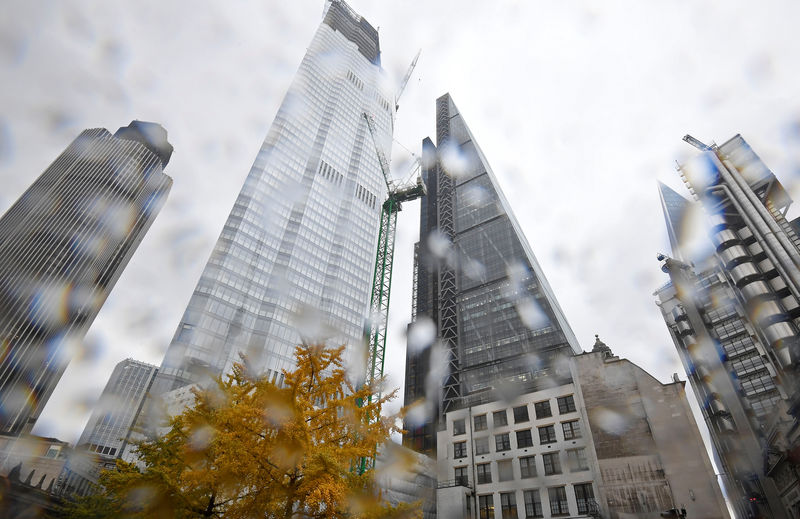LONDON (Reuters) - Britain's economy lost speed as expected in the three months to October, reflecting falling car sales and factory stoppages due to weaker demand, raising questions about the economy's health ahead of Brexit.
Gross domestic product growth in the three months to October slowed to 0.4 percent from an unusually robust 0.6 percent in the third quarter of 2018, in line with a Reuters poll of economists.
However, the Office for National Statistics warned that the third-quarter growth data was at risk of being revised downwards, due to a big upwards revision in Britain's trade deficit for the three months to September.
Compared with a year earlier, growth in October held at September's 1.5 percent, against expectations of a slight pick-up, while in October alone GDP rose by 0.1 percent as expected.
Monday's data confirm the British economy's strength in the third quarter of 2018 represented something of a blip, caused by a boost to consumer spending from an unusually warm summer.
More recent business surveys suggest Britain's economy is slowing sharply as businesses stall in the face of uncertainty about the terms on which the country will leave the European Union on March 29 next year.
A closely watched purchasing managers' index for November last week pointed to growth of just 0.1 percent in the final quarter of 2018.
Monday's data do not give updated details of business investment, which fell sharply in the three months to September.
Britain's economy has slowed since the June 2016 Brexit vote, its annual growth rate slipping from top spot among the Group of Seven group of rich nations to vying with Japan and Italy for bottom place in the rankings.

Monday's data showed annual growth in Britain's dominant services sector picked up to 1.8 percent from 1.6 percent, but factory output recorded its largest fall since March 2016, down 1.0 percent on the year.